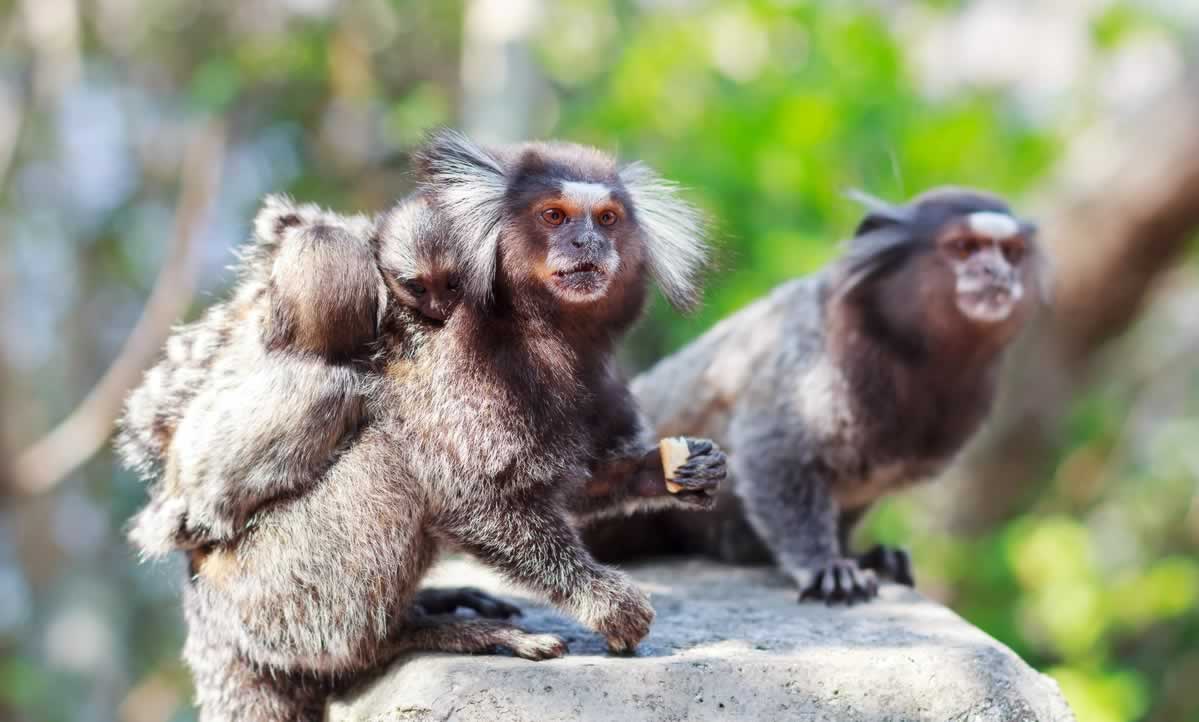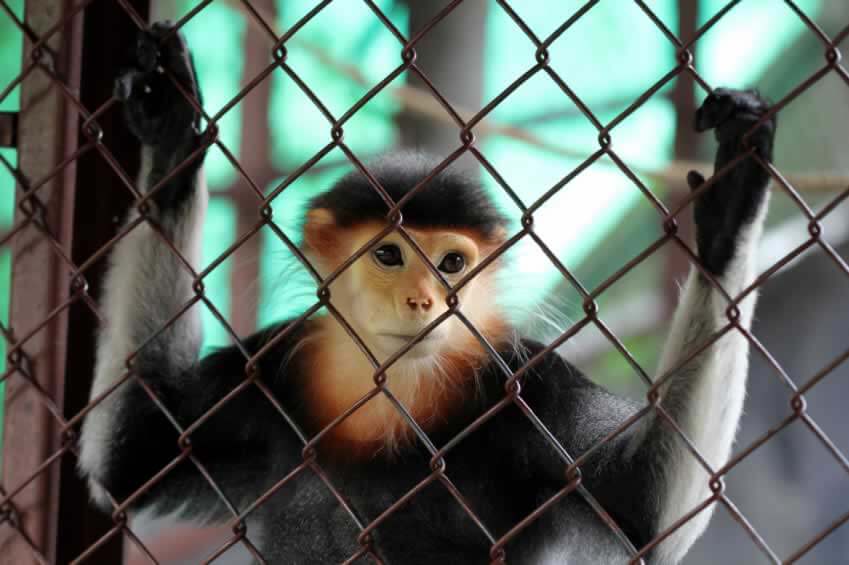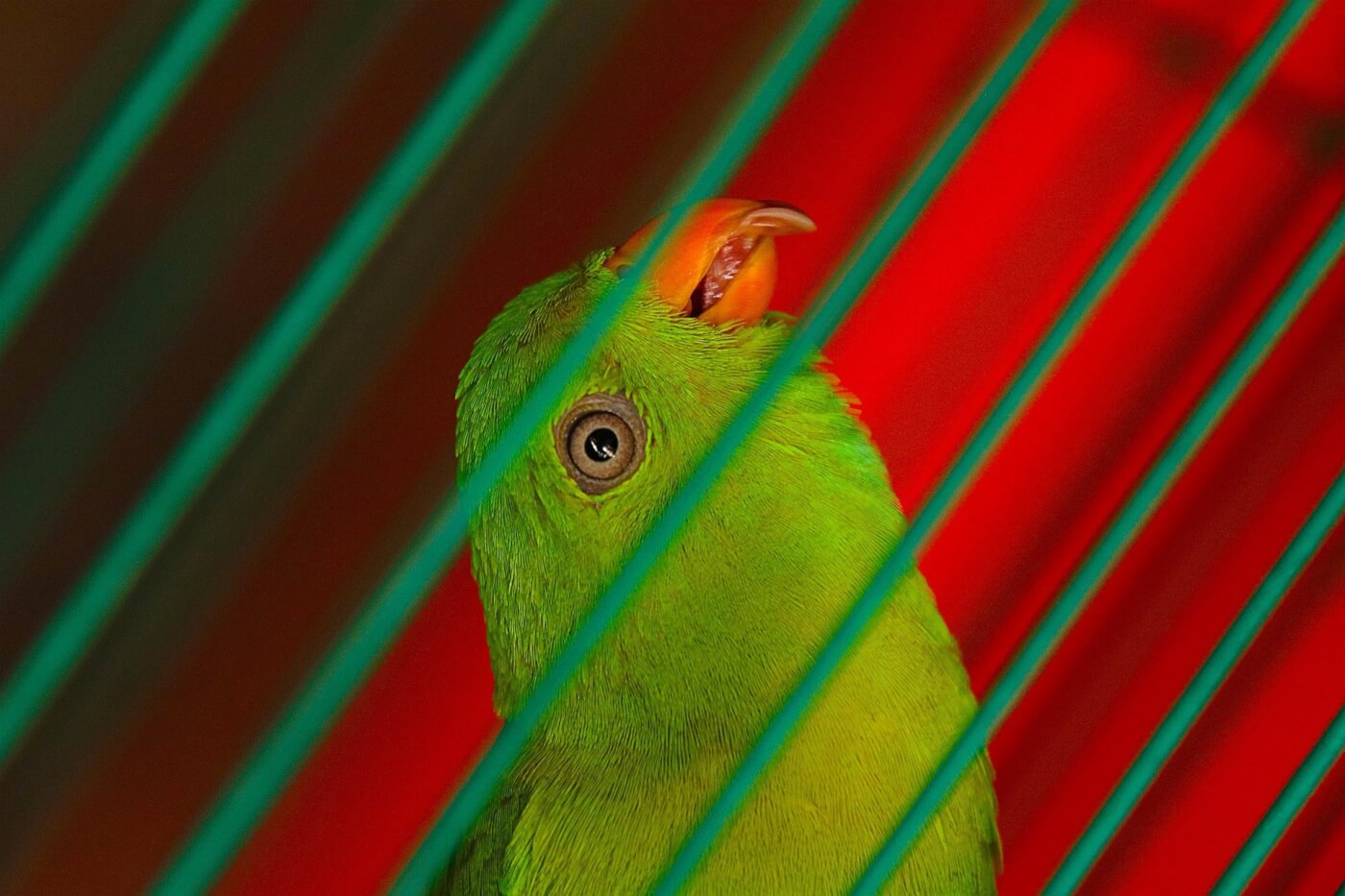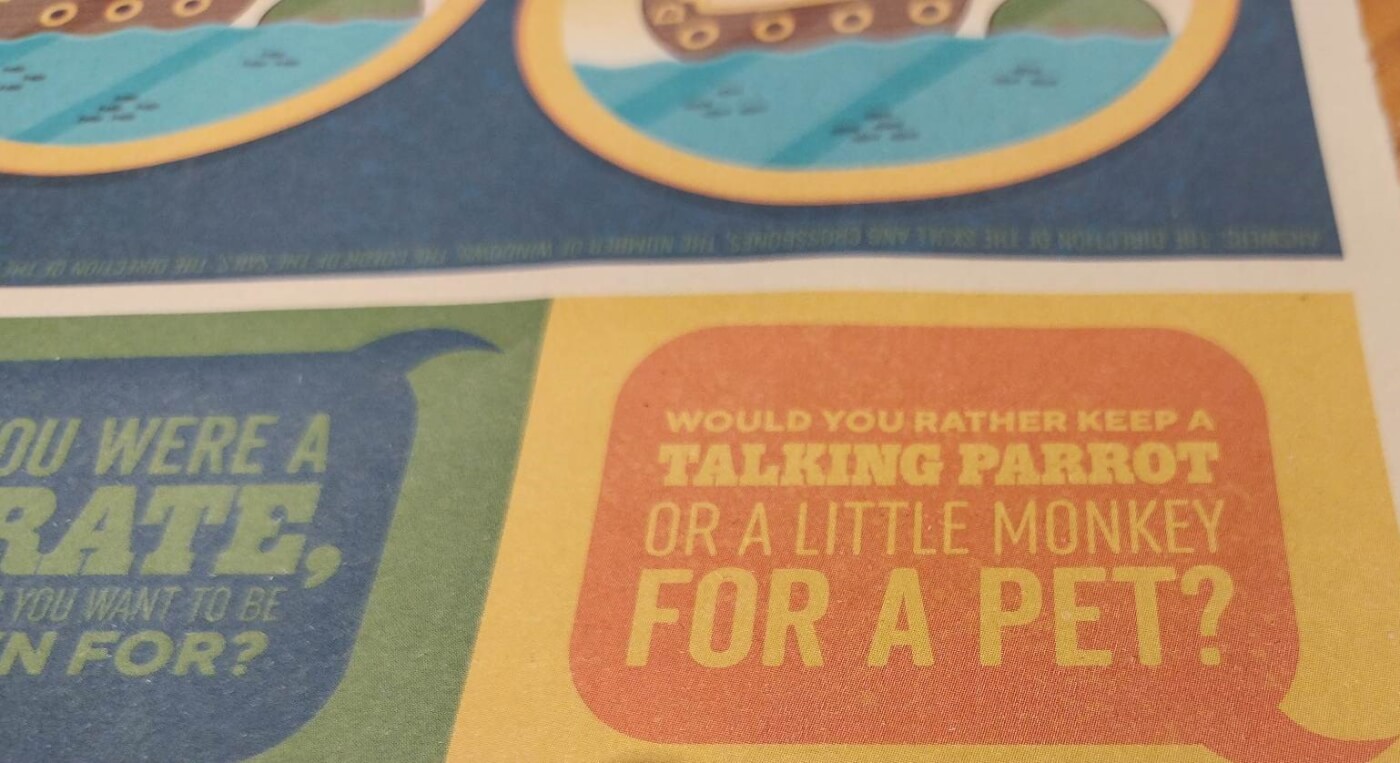Chili’s Is Changing Children’s Placemats to Help Wild Animals?
What could possibly be problematic or inappropriate on a major restaurant chain’s placemats for children? Chili’s just found out and had to face the hard facts. Guests of the popular restaurant chain alerted the North American Primate Sanctuary Alliance (NAPSA) to a children’s activity placemat at a Chili’s restaurant in Scottsbluff, Nebraska, that posed the question, “Would you rather keep a talking parrot or a little monkey for a pet?”
NAPSA and PETA contacted Chili’s with the concern that this messaging promoted keeping wild animals as “pets,” which could result in an increase in the demand for them, fueling the activities of unscrupulous primate dealers who mass-breed monkeys and sell them to private owners with no consideration for their welfare.
How Chili’s Will Set an Example for Other Chain Restaurants
Chili’s has committed to making a compassionate change to its children’s place settings. PETA is applauding this choice by sending monkey-shaped vegan chocolates to the chain after it confirmed to us that it’s no longer using children’s activity placemats that promote keeping parrots and monkeys as “pets.”
Why Chili’s Was Challenged to Make a Change
NAPSA was concerned about the messaging regarding “pet” monkeys, so it wrote to Chili’s and collaborated with PETA to bring this issue to the restaurant franchise’s attention.
Humans who exploit and market monkeys as “pets” have them taken away from their mothers prematurely by animal breeders and dealers—a practice that’s cruel to both the babies and the mothers and denies the infants the maternal care and nurturing they need for normal development. Primates are intelligent, curious, and highly social animals with complex physical and psychological needs that can’t be met in human homes.
Monkeys are unpredictable, and whether it’s due to the inherent stress of social isolation and living in an environment that defies their every genetic expectation or simply because it’s natural for them to address problems with aggression, they can and do bite humans. This is why so many “pet” primates end up being abandoned at roadside zoos or surrendered to sanctuaries, which are often at capacity and have long waiting lists.
PETA previously took on one of the most notorious U.S. primate breeders, and his license was terminated after he pleaded guilty to trafficking primates. This development came after we raised the alarm over singer Chris Brown’s illegal possession of a monkey acquired from this breeder.
Although NAPSA’s focus is on primates, it’s also problematic to propose that parrots should be “pets.” Since humans who cage and sell birds either capture them or breed them in captivity, this aspect of Chili’s placemat needed to be addressed, too. Parrots possess remarkable speech capabilities, high intelligence, innate playfulness, and notable loyalty. Yet in the U.S., an estimated 40 million parrots and other birds are kept as “pets,” caged and often improperly cared for, leaving them frustrated and lonely.
Harmful, speciesist messaging like that which was previously on Chili’s children’s activity placemats misleads the public and helps perpetuate the animal overpopulation crisis as well as the cycle of abuse that exotic “pets” are forced to endure.
How YOU Can Help Exotic Animals
Replace that old placemat’s flawed presentation with compassionate facts, and spread the word that exotic animals are not “pets.” Learn more about the cruel pet trade and the differences between companion animals and wildlife, and take action to help protect vulnerable animals from being exploited by seedy breeders:






